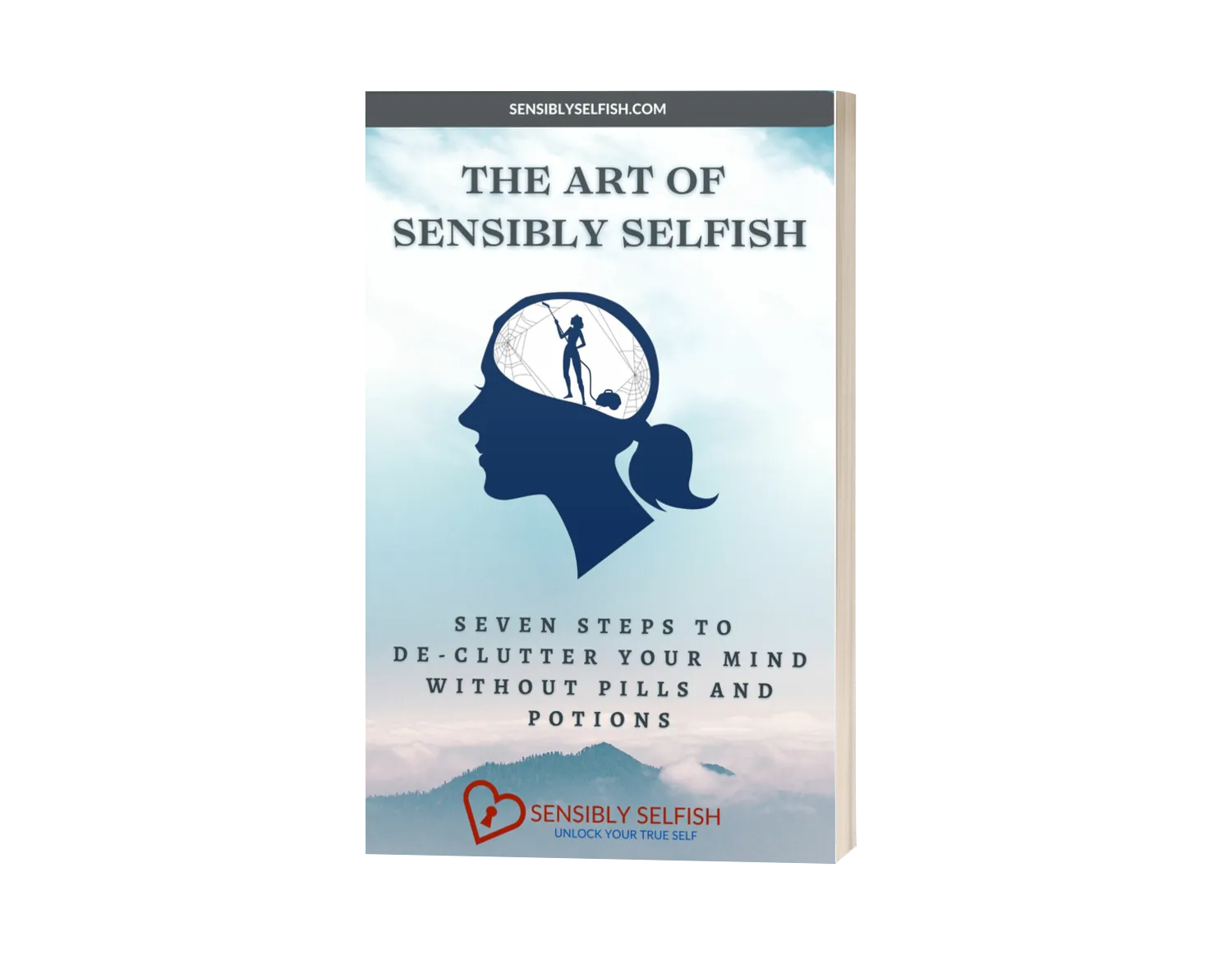Unraveling Estranged Bonds
A Compassionate Guide to Reconnecting with Adult Children

[Toc]
Insights into Emotional Distress
Estranged relationships can be a sensitive and challenging subject, especially for women over 45 who find themselves navigating the complexities of adult children with grandchildren choosing to disconnect. This blog post aims to shed a little light on this topic and provide insights that can help women approach these situations with empathy and understanding. Recognizing that such situations can be distressing, we aim to offer guidance on how to cope and, if possible, mend the fractured bonds that have caused emotional distress.
Studies suggest that more than one-quarter of young adults are estranged from one or both parents or have been, a finding that suggests a societal shift away from the traditional bonds of family. You are not alone.
Understanding Estrangement
Estrangement within families occurs when emotional distance replaces the once-close relationships. It's marked by a lack of communication, strained interactions, and avoidance of meaningful conversations. The pain of estrangement is intensified when adult children and their children – the grandchildren – are involved.
These multi-generational dynamics add layers of complexity to the situation, often leaving parents grappling with feelings of confusion, sadness, and even guilt. The journey to healing these estranged relationships involves acknowledging the reasons behind the detachment, recognizing the emotions involved, and seeking paths to reconnection.

Why Does Estrangement Happen
Estrangement can stem from various factors, such as unresolved conflicts or traumatic events that left emotional scars. Changes in life circumstances, such as working abroad, new partners, divorce, or remarriage. Basically, anything that can shift family dynamics and lead to misunderstandings.
Generational differences in values and beliefs can also create communication gaps, while personal struggles and mental health challenges might contribute to strained relationships. It's essential to understand that these reasons are often interconnected, forming a complex web of emotions and experiences that have led to the estrangement.
The Impact on All Parties
Estrangement affects each party differently. For parents, being estranged from adult children and grandchildren can result in feelings of grief/loss, rejection, and unfulfilled expectations. This emotional burden can take a toll on their well-being.
Adult children and grandchildren might struggle with guilt over the decision to distance themselves, feeling caught between their desires and societal expectations. There may be deeper emotions involved such as anger and resentment creating barriers to communication.
Acknowledging all emotions and their impact is the first step towards addressing them and working towards a healthier, more connected relationship.

Rebuilding Bridges: What Can You Do
Reconnecting with estranged adult children and grandchildren requires deliberate efforts. Self-reflection is crucial; acknowledging your role in past conflicts and understanding your own emotions is a starting point. Engaging in open communication, even if uncomfortable, can pave the way for understanding each other's perspectives.
Professional help, such as family therapy, offers a structured environment for productive conversations. Patience and empathy are key, as rebuilding trust takes time. By focusing on creating a safe space for dialogue and demonstrating genuine intentions, parents can take meaningful steps toward healing fractured relationships.
Supporting an Estranged Adult Child in a Controlling Relationship
In situations where you suspect that your adult child might be isolated or manipulated within a controlling and abusive relationship, such as one characterized by narcissism or gaslighting, your role as a parent takes on a delicate dimension. Recognizing the signs of emotional manipulation and providing appropriate support can be pivotal in ensuring your child's well-being.
1. Educate Yourself: Familiarize yourself with the signs of narcissistic behavior and gaslighting. Understand the tactics used to manipulate and control, enabling you to recognize red flags.
2. Open and Non-Judgmental Communication: Maintain open lines of communication with your adult child. Express your concerns in a non-judgmental manner, emphasizing your love and support. Be patient and ready to listen, allowing them to share their perspective.
3. Offer Resources: Share information about controlling relationships, narcissism, and gaslighting, highlighting the importance of seeking professional help if needed. Point them toward support groups, therapists, or organizations that specialize in abusive relationships.
4. Respect Autonomy: While your instinct may be to intervene, it's crucial to respect your child's autonomy and decisions. Offer guidance without imposing your own choices on them.
5. Safety First: If you fear for your child's safety, prioritize their well-being. Encourage them to develop a safety plan and consider involving law enforcement or seeking legal advice if necessary.
6. Patience and Persistence: Breaking free from a controlling relationship can be a complex process. Your adult child might initially resist help, but maintaining a patient and supportive stance can encourage them to reach out when they're ready.
7. Stay Connected: Even if the relationship strains your connection with your child, strive to maintain contact without being intrusive. Reiterate your unconditional love and willingness to support them.
8. Professional Intervention: If the situation worsens, and you believe your child's well-being is seriously jeopardized, consider involving professionals, such as therapists or counselors, to help facilitate the recovery process.
Supporting an adult child in a controlling relationship demands a delicate balance of empathy, understanding, and respect. By being a reliable source of support, information, and unwavering love, you can create a safe space for them to consider their options and, eventually, make decisions that are in their best interest. Remember, your role is to be their advocate, guiding them toward healing and empowerment while allowing them to retain control over their own journey.

Case Study: Denise's Experience through Estrangement and Healing
“At 59 years old, the ache in my heart persists as my adult son remains absent from my life for a staggering five years. As a mother of three children born within a span of five years - two daughters and a son - I poured my heart into raising them, nurturing a foundation of love, honesty, care, and support. Yet, as life unfolded, circumstances took unexpected turns. My son engrossed in work, gradually became emotionally distant.
In due course, he married a woman who brought not just her love, but also the complexities of a past marriage and its baggage. Both she and her ex-husband carried the traits of narcissism, adding layers of complication to the family dynamic. As my son got tangled in the intricacies of his new life, I found myself feeling increasingly sidelined, both emotionally and physically.
Recently, my youngest daughter's wedding marked an occasion for family reunification. Surrounded by the warmth and affection of my adult daughters, I couldn't help but remain bewildered by the ongoing silence from my son and his wife. Though my daughters occasionally interact with their brother, the unspoken shunning hovers over us like a shadow. We tiptoe around the issue, avoiding the discomfort that addressing it might bring.
The years have seen a parade of well-intentioned advice, but the fact that an adult child sometimes sides with an absent parent offers little solace to the anguish that pervades my heart. This unexpected estrangement feels like a cruel twist of fate, a narrative I never envisioned for myself. I find myself grappling with the sheer unfairness of it all, as I reflect on the unwavering devotion I dedicated to raising my children.
Haunted by memories that I attempt to keep at bay, I confront the reality that life can be harsh and unforgiving. Acceptance of the situation has been an arduous journey, one where I've had to confront my own expectations and the unpredictability of human connections. Attempting to mend the rift has been met with resistance, leaving me torn between persisting and letting go.
Through this heart-wrenching experience, one thing remains certain: I choose to hold my head high and adhere to my values. I refuse to let this unfortunate estrangement cloud my relationships with my loving daughters. Their presence in my life is a treasure, a beacon of the love that's reciprocated and cherished. While my son's absence leaves a void, it won't define my life. With resilience and the embrace of unwavering love, I continue this unexpected chapter, determined to carve out a future that acknowledges the pain while preserving the beauty of the connections that remain.”

Boundaries and Self-Care
As you embark on the journey of reconnecting with estranged adult children, the establishment of healthy boundaries becomes pivotal. Setting clear boundaries not only safeguards your emotional well-being but also ensures that the reconnection process remains respectful and balanced. Boundaries define what you're comfortable with and enable you to communicate your needs effectively. They serve as a protective shield, preventing the re-emergence of harmful patterns and allowing space for understanding to flourish.
Moreover, prioritizing self-care is an essential component of navigating these complex dynamics. Engaging in activities that nurture your well-being and uplift your spirit can provide a necessary respite from the emotional intensity of attempting to mend relationships. Whether it's pursuing a creative hobby, practicing mindfulness, or spending quality time with supportive friends, these actions replenish your emotional reserves and grant you the strength needed to navigate the challenges that may arise during the reconnection process.
In addition to personal practices, seeking external emotional support can be immensely valuable. Confiding with friends who understand your situation, consulting with a therapist who specializes in family dynamics, or participating in support groups can offer fresh perspectives and provide a safe space to share your thoughts and feelings. These sources of support not only validate your experiences but also empower you with tools to manage your emotions effectively.
By embracing healthy boundaries and prioritizing self-care, you empower yourself with the resilience needed to navigate the twists and turns of rekindling relationships. The act of reconnection is a delicate dance, and ensuring your emotional well-being through boundaries and self-care ensures that you remain an anchor of stability throughout the process. Remember that as you seek to mend bridges, you are deserving of the same care and consideration you offer to others.

Acceptance and Moving Forward
Despite the earnestness of your efforts to mend estranged relationships, it's essential to acknowledge that reconnection may not always be attainable. This realization might evoke a range of emotions, and it's perfectly valid to experience a grieving process for the lost connection and unmet expectations. The journey toward healing isn't linear; it's marked by its own unique timeline and emotional ups and downs.
[CTA]
In situations where reconnection remains elusive, it becomes paramount to shift your focus toward personal growth and acceptance. Embrace the idea that healing can manifest even if the desired reconnection isn't achieved. This transformative journey enables you to find closure and emotional well-being independently of the outcome. By directing your energy toward your own development and inner peace, you liberate yourself from the weight of unfulfilled hopes.
Through this process, you'll gain a profound understanding of yourself, your values, and your capacity for empathy and forgiveness. The challenges you face along the way contribute to your emotional resilience, teaching you valuable lessons about patience, compassion, and the complexities of human relationships. Remember that each step you take, even if it leads you in a direction you hadn't initially anticipated, is a testament to your strength and growth.
As you navigate the intricate terrain of estrangement, know that your journey is valid, regardless of its outcome. The pursuit of healing is a deeply personal one, and your commitment to personal growth and acceptance is a testament to your unwavering strength.
Grace and Resilience
Estranged relationships among adult children, grandchildren, and parents are complex and emotionally charged, often leaving everyone involved with a sense of loss. By understanding the factors contributing to estrangement and approaching the situation with empathy, open communication, and self-care, the possibility of reconnection becomes more achievable.
However, it's important to remember that healing and personal growth are possible even in the absence of reconnection. By prioritizing understanding, self-care, and personal development, women over 45 can navigate these challenging relationships with grace and resilience.
[contact]
Recommended Reading:
Rules of Estrangement - Dr. Joshua Coleman
Fault Lines - Karl Pillemer
Surrounded By Idiots - Thomas Erikson









